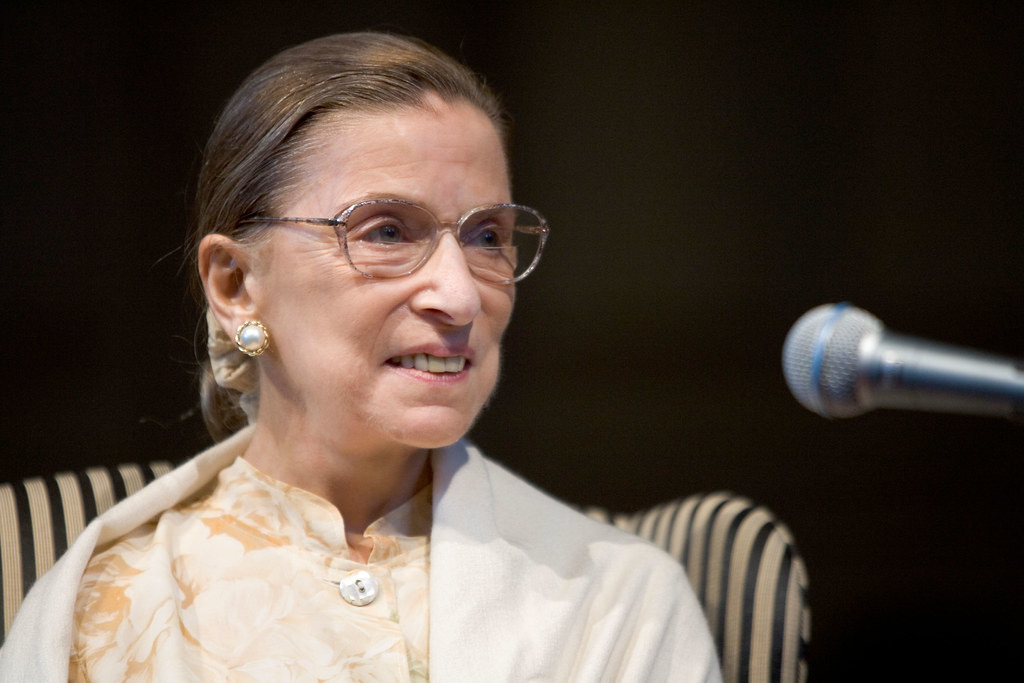As the country remembers Supreme Court Justice Ruth Bader Ginsburg, Senior U.S. District Judge Nanette Laughrey recalls facing her in a case before the nation’s highest court. And it was one Ginsburg used to advocate for women’s voices.
“It was an honor for me to be in the same courtroom,” Laughrey told The Missouri Times. “She was outstanding as you might guess. One of the things we forget is where we were as a country 40 years ago. This is a very different world we’re living in, and we sometimes take for granted rights that people like Ruth Bader Ginsburg gave to us.”
In 1978, the U.S. Supreme Court heard Duren v. Missouri where Ginsburg argued against a statute that exempted women from jury service in Jackson County. It was her sixth and final case before the high court as an attorney.
The case centered on Billy Duren, accused of first-degree murder and robbery in 1975, who argued before the Missouri Supreme Court his initial trial was unfair due to the lack of women on the jury. While women made up 54 percent of the county’s population at the time, according to the 1970 census, only five members of the 53-person jury pool were women. And none were selected for his initial trial.
Missouri was one of two states that allowed women to be exempt from jury service at the time. Jackson County, where Duren was initially tried, administered surveys to women when selected from the jury pool, allowing them to opt-out.
Duren argued the state’s law and county practice violated his Sixth and 14th Amendment rights, guaranteeing him a trial by a jury chosen from a fair cross-section of the community. Missouri’s highest court ruled against his argument, but the case moved on to the federal level where Ginsburg aided attorney Lee Nation in defending Duren.
Laughrey, three years out of law school and an assistant to then-Missouri Attorney General John Ashcroft at the time, represented the state in both courts. Duren was her first case before the Supreme Court.

“This is hardly a favor to the supposedly favored class,” Ginsburg said during oral arguments. “A privilege to avoid service at whim — prominently advertised and readily available to any woman or any man or any other large, stable, distinctive population group — the basis of the defendant’s cross-section right, that right is real only when the obligation to serve is placed on citizens without automatic exemption based solely on their race, national origin, or sex.”
Ginsburg referenced an earlier Supreme Court case, Taylor v. Louisiana, in which the court ruled that the Pelican State’s policy of excluding women from jury pools altogether was unconstitutional.
But Laughrey argued the states’ policies were not equivalent as women in Missouri were given the option to opt-out rather than total exclusion. She also said the degree of population disparity that would constitute a violation of the Sixth Amendment would have to be established.
The court articulated a three-pronged test for when a failure to fairly represent a particular group in a jury pool resulted in a constitutional violation. It ruled in Duren’s favor 8-1, holding that the underrepresentation of women on local juries was due to the jury selection process and their exemption by request violated his constitutional rights.
Laughrey said the case they shared exemplified the impact that Ginsburg had left on America.
“What’s important about the case and about Justice Ginsburg’s insight into the issues women were facing at that time was the idea that it wasn’t that they were prevented from being on the jury, but it resulted in their voices not being heard,” Laughrey said. “The case was about Duren’s rights, but that message was what she used to convince the court that this practice was unconstitutional. It wasn’t only about the rights of women, it was about the responsibility of women and for the system to value their voices.”
The Jackson County policy was subsequently abolished, according to Laughrey, leading to retrials of similar cases at the county level.
Laughrey went on to serve as a municipal judge in Columbia and taught law at the University of Missouri. She was appointed to the Western District of Missouri in 1996.
Duren v. Missouri was Ginsburg’s final Supreme Court case as an attorney; she was appointed as a federal judge the following year, a position she served in until her confirmation as the second woman to serve on the U.S. Supreme Court in 1993.
Ginsburg died last week, leaving behind a legacy of advancements in equality and social reform. She became the first woman to lie in state at the nation’s Capitol on Friday, and the question of her open seat is a contentious topic for the country.
Cover image: Ken Bennett, Wake Forest School of Law/Creative Commons

Cameron Gerber studied journalism at Lincoln University. Prior to Lincoln, he earned an associate’s degree from State Fair Community College. Cameron is a native of Eldon, Missouri.
Contact Cameron at cameron@themissouritimes.com.





























